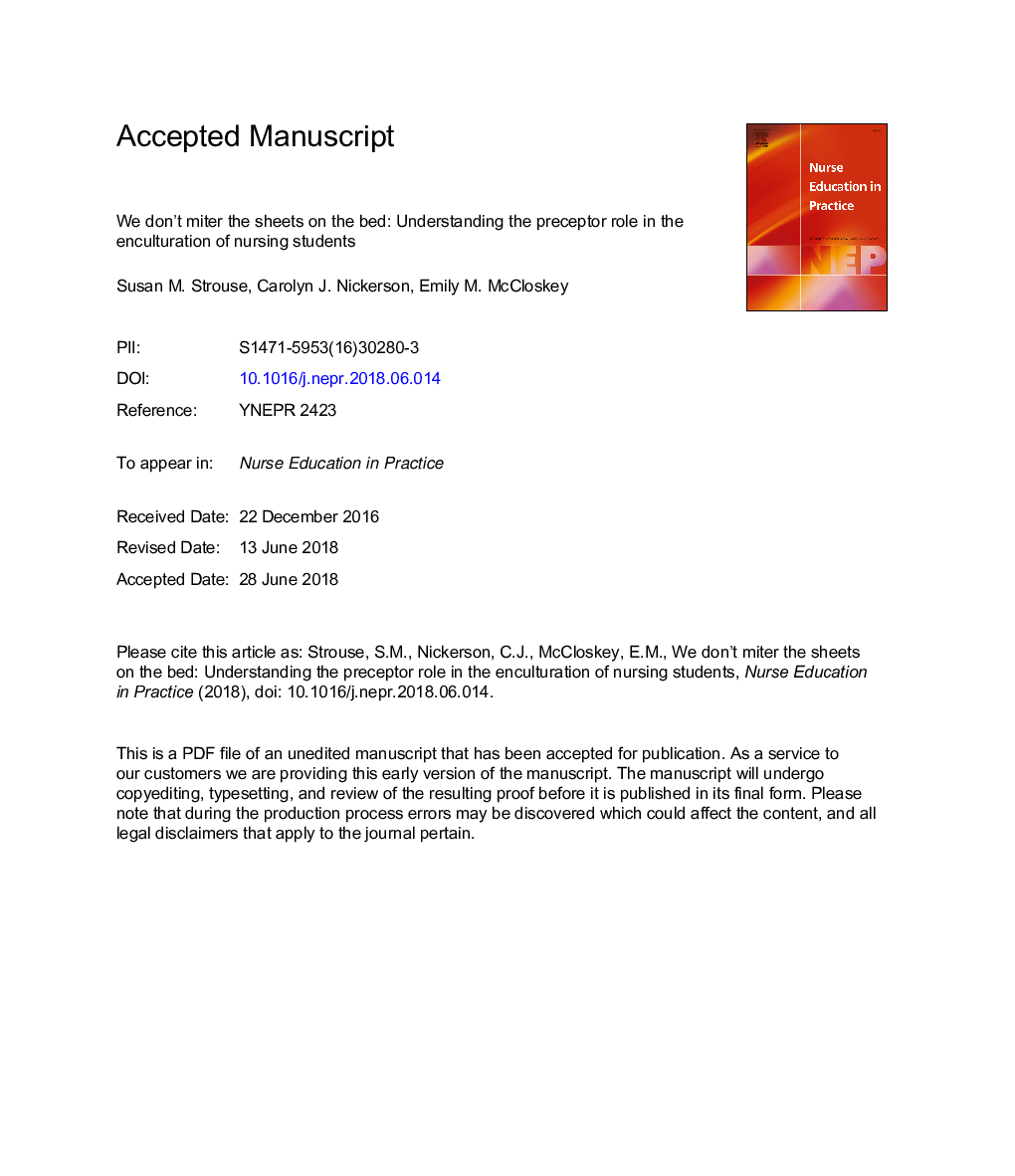| Article ID | Journal | Published Year | Pages | File Type |
|---|---|---|---|---|
| 6846169 | Nurse Education in Practice | 2018 | 32 Pages |
Abstract
Preceptors play key roles in nursing students' socialization or formation, and transition from academia to practice. Students still struggle with this transition. Viewing student socialization to nursing as enculturation has provided valuable insights into faculty perceptions of this process. This focused ethnography explored preceptors' perceptions about nursing's culture and their role in bringing students into that culture. Data included semi-structured interviews with preceptor participants from three hospitals in two cities in a single Midwestern state. Analysis of verbatim transcripts followed Leininger's four phases of qualitative data analysis. The following themes emerged: nursing has a unique, dynamic professional culture that is difficult to describe and varies based on many different factors; nursing students are part of this unique, dynamic and professional nursing culture; there are multifaceted influences to the culture of nursing; preceptors help nursing students learn the real culture as opposed to the ideal aspects of the culture taught in school; and nursing students and preceptors mutually benefit from preceptor mentorship and role modeling. Viewing professional socialization as enculturation integrates various perspectives on work place learning for clinical nursing education and invites nurse preceptors' attention to sociocultural factors in this process.
Keywords
Related Topics
Health Sciences
Nursing and Health Professions
Nursing
Authors
Susan M. Strouse, Carolyn J. Nickerson, Emily M. McCloskey,
